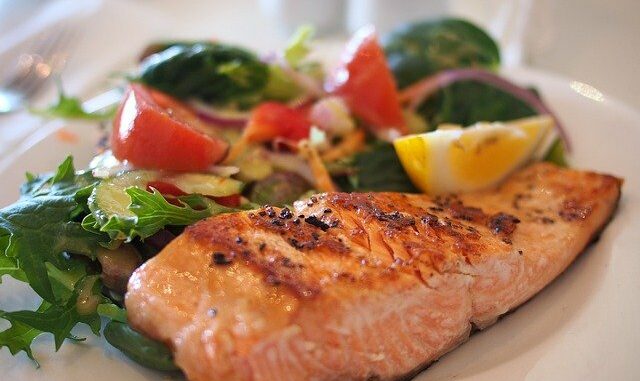
If you’ve ever been told by your doctor that you need to lower your triglycerides level, you may be wondering where to start. The good news is that if you want to lower your number, there are lifestyle changes you can easily make that can make a significant difference. So if you want to learn how to lower triglycerides naturally, then keep on reading for 8 simple tips you can try today!
What Are Triglycerides?
You may have heard of triglycerides and the importance of keeping them in check. This is particularly true if you have a family history of heart disease or stroke, or if you are approaching midlife.
Oftentimes, if you have too much belly fat, your triglycerides and cholesterol 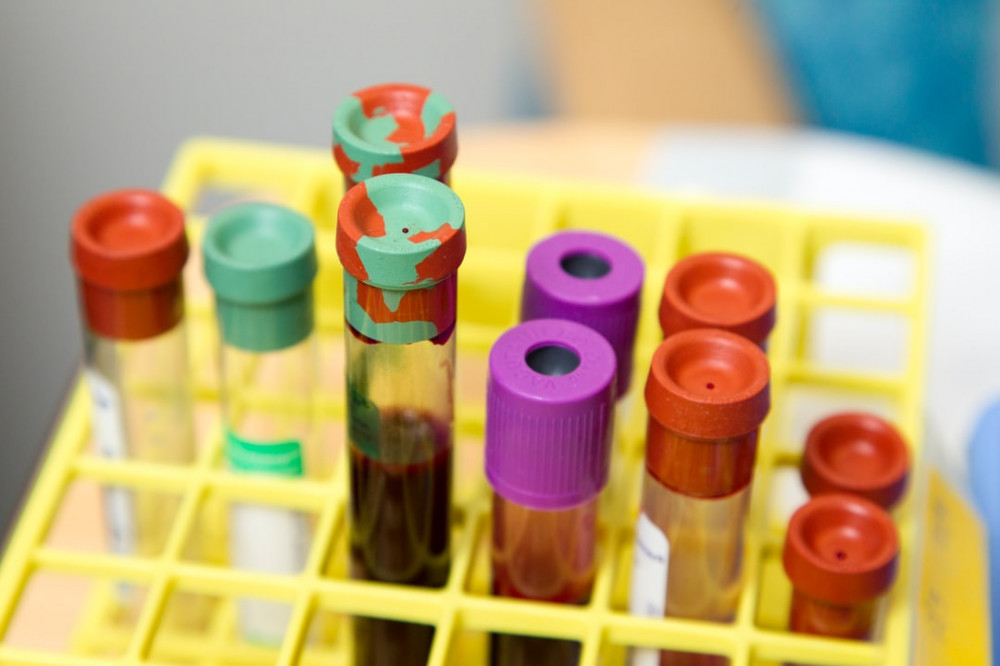 levels may be high without you even knowing.
levels may be high without you even knowing.
All of these things in combination with high blood pressure can eventually wreak havoc with your health.
Triglycerides are similar to cholesterol in that they are both fats that are found in the blood.
The difference in the two lies in their functions.
Cholesterol helps your body to make cells, certain hormones and vitamin D.
On the other hand, triglycerides are a result of unused calories that may be stored in your body in order to help you with energy needs.
After you have eaten, any calories that were not needed get stored in the fat cells as triglycerides for later energy use.
If you eat more than you can burn over a prolonged time period, this can lead to higher than normal levels of triglycerides.
Suffice it to say, if your numbers are elevated (that means out of the healthy range), you are at a higher risk for health conditions that include: heart disease, metabolic syndrome, stroke and obesity.
General Contributing Factors and Numbers
Lifestyle definitely tends to play a large role in your triglycerides number. There are a number of factors that can contribute to high triglycerides. Some of these include:
- frequent alcohol consumption
- a high calorie diet that contains too much sugar and/or simple carbs
- diabetes that is not managed properly
- lack of exercise
Triglyceride levels are generally measured in milligrams per deciliter (mg/dL). A number that would be considered in the normal, healthy range would be less than 150 mg/dL.
A borderline number would be considered 150-199, a high number would be considered 200-499 and extremely high would be 500+.
The National Institutes of Health in the United States estimates that almost 26% of Americans have triglyceride levels over a healthy, normal range (150 mg/dL).
Lowering Triglycerides Naturally
Even though many people do have elevated triglyceride levels, if doesn’t have to remain that way. Clearly, this is an important health issue.
However, there are many ways to help reduce your levels naturally through different diet and lifestyle choices.
1. Reduce Your Alcohol Intake
Completely avoiding alcohol may not be 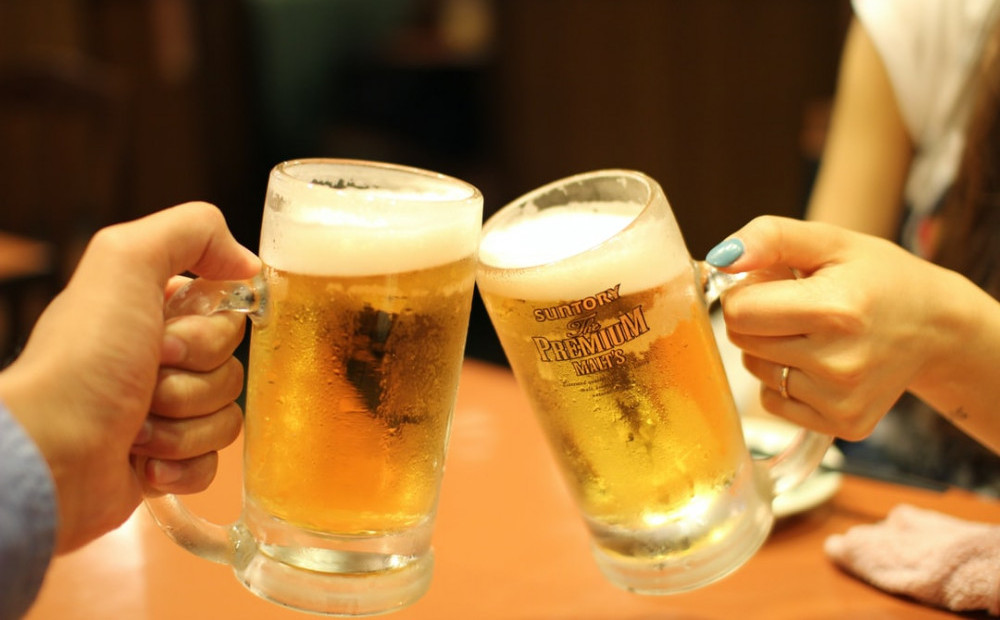 necessary. However, alcohol is generally high in sugar, carbs and calories.
necessary. However, alcohol is generally high in sugar, carbs and calories.
Oftentimes, this is easily converted into triglycerides.
Alcoholic consumption can also affect your liver where the processing of fats happens.
Research shows that even moderate drinking of 1-2 alcoholic drinks per day can greatly increase the changes of elevated triglycerides.
Even though some studies suggest that light to moderate drinking can lower heart disease risk, the jury is still out. So be always sure to check with your doctor to see what is a healthy range for you.
2. Get Your Exercise
There is no doubt that daily, regular exercise is important to good overall health. But exercise in general can become even more important if you are trying to lower your triglyceride levels.
If you are working at reducing your weight, try aerobic  exercise.
exercise.
Not only does it help your body to metabolize sugars more efficiently, but it can also reduce your triglycerides.
When your body metabolizes sugar effectively, there will be less sugar in the bloodstream which leads to lower numbers.
The American Heart Association recommends getting 30 minutes of exercise 5 times per week for optimal benefits.
Not all exercise has to be punishing. There are many choices when it comes to regular exercise, especially if it is for weight loss reasons. Choose something that you enjoy so that you can stick with it long term!
Some easy forms of exercise include things like:
- walking
- dancing
- swimming
- cycling
- yoga
- aerobic classes/videos
3. Aim For A Healthy Weight
If you are overweight, this may be a significant reason for having elevated triglycerides. 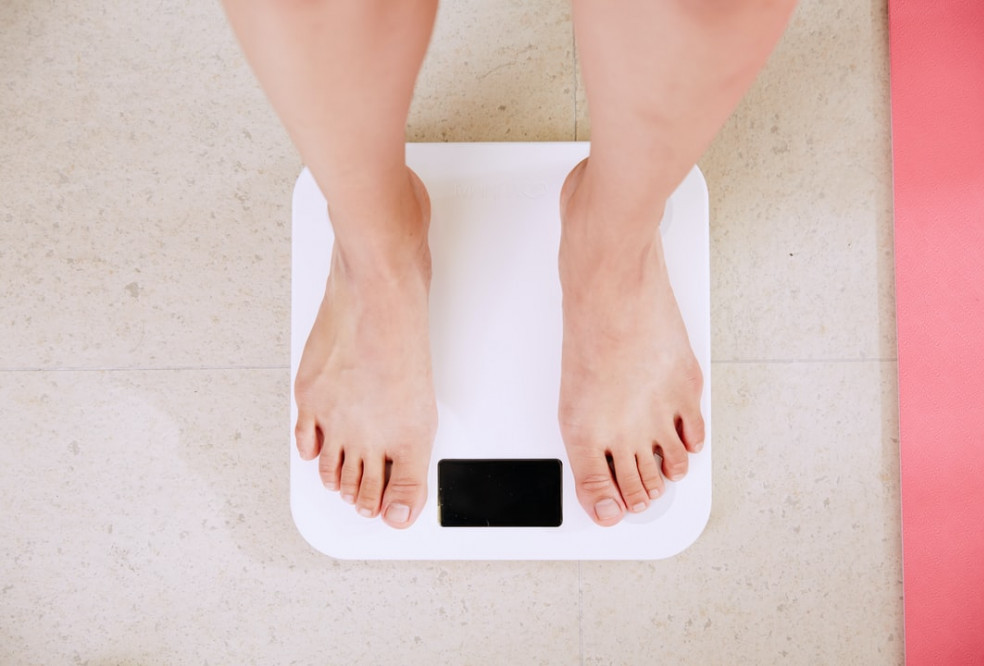
Being overweight and having belly fat also significantly increases your risks for many health conditions such as: type 2 diabetes, cardiovascular disease, some cancers and high blood pressure.
High triglycerides always relate back to having more unburned, stored calories in your body.
So try to reduce your calories. This will lead to weight loss and lower numbers.
A simple way to start working towards a healthier body weight is to start off by reducing 500 – 1000 calories per day.
Research has shown that losing just 5-10% of your body weight can lead to real results in terms of lowering blood triglyceride levels.
However, always check with your doctor before beginning any weight loss steps in order to see what is best for you.
4. Add More Fiber
This is an easy way to start lowering your number.
Fiber is 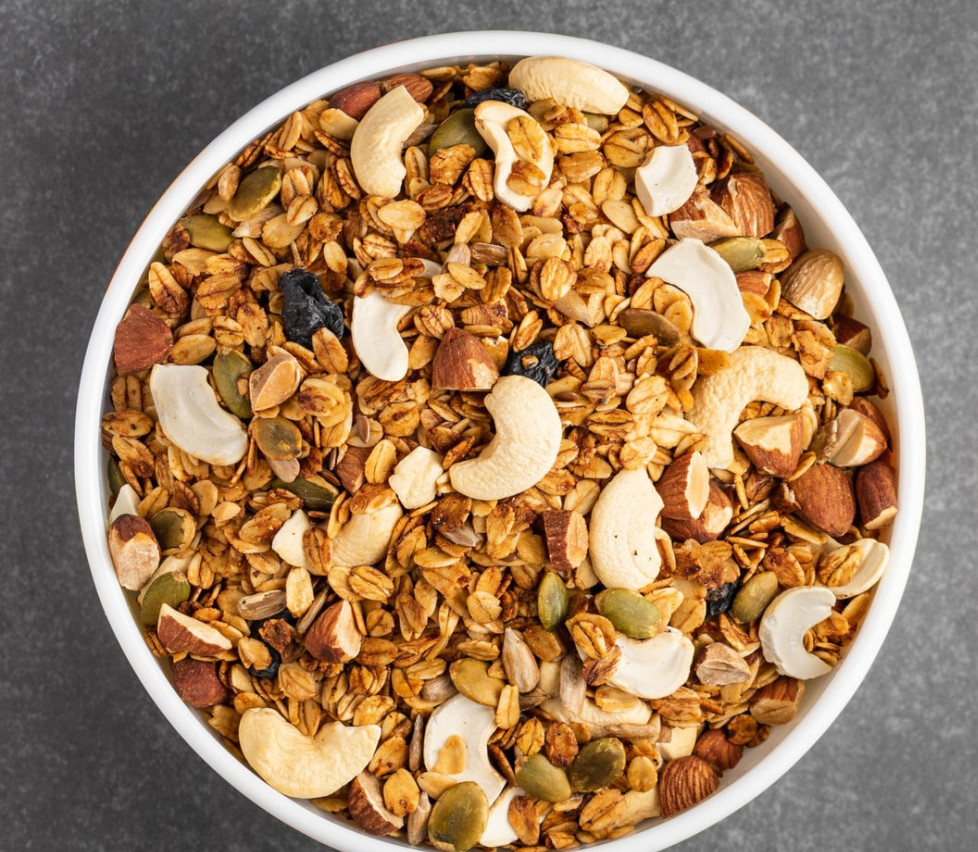 found in many foods such as fruits, vegetables, nuts, seeds, legumes and whole grains.
found in many foods such as fruits, vegetables, nuts, seeds, legumes and whole grains.
Fiber is the part of the food that is indigestible. In essence, it helps to bulk you up and feel full longer.
It also aids in digestion and regularity.
Adding more fiber into your daily food intake can significantly reduce triglycerides naturally, especially if you are overweight or obese.
For example, bumping up your fiber can help slow the fats and sugars from being absorbed too quickly in the small intestine.
This can help to reduce triglyceride levels after eating meals that are higher in fiber. So go ahead, eat more vegetables and complex carbs to help lower your numbers!
5. Eat Fatty Fish
There is a reason why the Mediterranean diet is considered so heart-healthy. Loaded with fatty fish and healthy fats like olive oil, it can really make a noticeable difference in reducing triglyceride numbers.
Certain fatty fish like salmon, herring, tuna, sardines and mackerel are loaded with omega-3 fatty acids and need to be consumed through diet.
The American Heart Association and the Dietary Guidelines for Americans recommend eating 2 servings of fatty fish per week for heart health.
6. Watch Your Fats
Not all fat in the diet is created equally.
Some fats like monounsaturated and 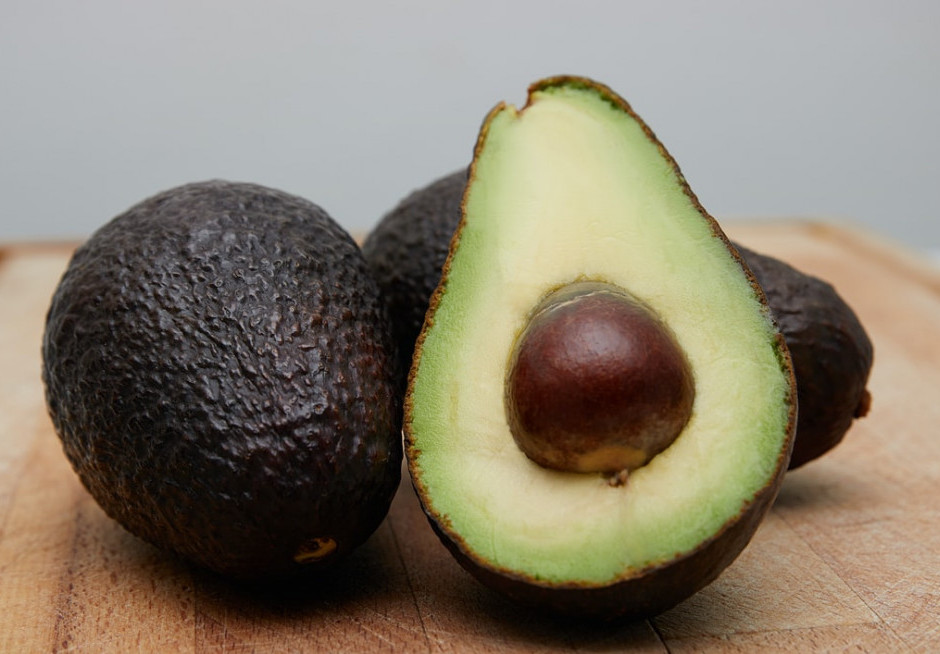 polyunsaturated fats are good for you and can reduce triglycerides, especially when combined with a lower carb intake.
polyunsaturated fats are good for you and can reduce triglycerides, especially when combined with a lower carb intake.
Healthy fats can be found in many foods such as:
- fatty fish (polyunsaturated fat)
- flaxseeds, walnuts, chia seeds (polyunsaturated fat)
- olive oil (monounsaturated fat)
- nuts (monounsaturated fat)
- avocados (monounsaturated fats)
Try to avoid trans fat because they raise your bad (LDL) cholesterol and triglyceride levels.
One way to lookout for these dangerous fats is to check nutrition labels for hydrogenated oil/fat. Even a small amount can do big damage to your health.
7. Try To Lower Your Carbs
Adding complex carbs to your diet can be healthy for fiber and nutrition. But simple carbs in the form of too much sugar can really elevate those triglycerides.
As already mentioned, too much sugar which cannot be burned off, gets stored in the fat cells as triglycerides. Therefore, lower carb diets can be helpful in reducing numbers.
Many refined foods (which have had their fiber removed) can be problematic in the diet.
Not only do they generally convert to sugar much more quickly, but have little nutritional value.
Things like white rice, white bread, and pasta are common everyday foods that are not helpful to lowering triglycerides.
To see your numbers reduce naturally, consider switching your simple carbs to complex ones. Wiser choices such as whole-grain bread/pasta and brown rice are simple adjustments that make a big impact!
8. Eating Regularly
Even though research can’t conclusively say at this point whether or not meal frequency really plays a key role in reducing triglyceride levels, eating at regular intervals can prevent insulin resistance.
And this is important when it comes to belly fat reduction.
When you eat at regular times in the day, insulin is released into the blood which carries sugar to cells for energy.
Therefore, eating at set times throughout the day can help avoid insulin resistance and lower triglycerides.
Nonetheless, if you want to maintain insulin sensitivity and reduce your number naturally, consider eating healthy foods at a set time throughout the day.
9. Eat More Nuts
There are many benefits to eating tree nuts 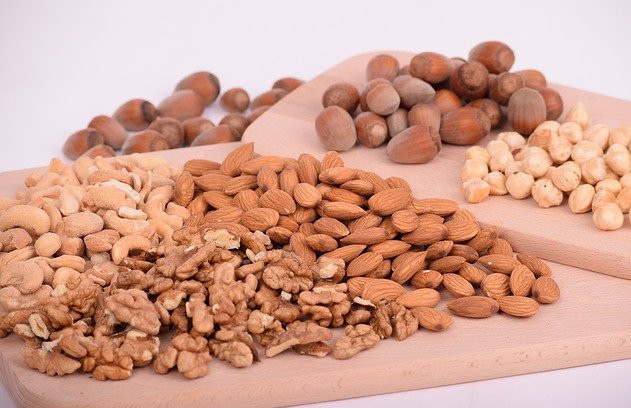 because they all contain fiber, unsaturated fats and omega-3 fatty acids.
because they all contain fiber, unsaturated fats and omega-3 fatty acids.
That is a potent combination that can really help with lowering triglycerides naturally.
Some of the best tree nuts to consider adding to your diet include pecans, macadamias, cashews, almonds, pistachios, Brazils and walnuts.
Although delicious and healthy as a snack, remember that nuts are also high in calories. Consider portion size for caloric control.
If You Want To Know How To Lower Triglycerides Naturally…
Although you may have been told by your doctor to lower your triglyceride levels, there are many natural ways to accomplish this.
With diet and lifestyle modifications, you can improve your health.
What you choose to eat (or not eat) and the amount of exercise you get on a regular basis can make all the difference in this important blood fat number.
Eating less saturated and trans fat while increasing your monounsaturated and polyunsaturated fats are key.
Coupled with other dietary choices like switching simple carbs to complex ones, you will quickly be on the way to reducing your number while improving your overall health.
Affiliate Disclosure: The links in this review may result in a small commission should you decide to buy at no additional cost to you. This goes toward supporting researching, writing and maintenance of this website. We only recommend the highest quality products.
Disclaimer: The information on this website is not intended to be a substitution for the advice of a licensed, medical professional. Always consult with your doctor before purchasing any health supplement, especially if you are taking medication or have a medical condition. These products are not intended to diagnose, treat, cure or prevent any disease. Individual results may vary and these statements have not been evaluated by the FDA.

Very well done
Thank you for taking the time to read and comment on this article!
Interesting post. How do you keep up with all of that? Is there a device available that measures Triglycerides? Lifestyle changes are always good. Alcohol is definitely a no no when it comes to losing weight. Taking it out of your diet completely improves quality of life. I like how your page is structured. Very clean.
Thanks for dropping by with your comments. It’s always best to get your numbers first and discuss with your doctor to find what works best for you. But a healthier lifestyle is a great place to start.
Hi, Lee! Thank you for writing this very useful guide. I’m a clinical psychologist and specialize in nutrition-based research, and it is always refreshing to come across another blogger who cares about this area. These are extremely beneficial tips that I will be sharing with my patients who are struggling with weight management.
Hi Erica! Thank you so much for your positive feedback. It is much appreciated. Our health is our most important asset and I love to share my passion for it as well. Thanks for dropping by!